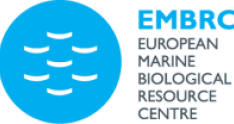"Of snails, crabs and waves: a tale of adaptation through the lens of genomics" lecture, 18th June, ECIMAT
"Of snails, crabs and waves: a tale of adaptation through the lens of genomics" lecture, 18th June, ECIMAT
On Tuesday 18th June 2019, Dr Francesca Raffini, a postdoctoral researcher at the Molecular Ecology Laboratory of the University of Sheffield, will present the lecture “Of snails, crabs and waves: a tale of adaptation through the lens of genomics” at the “Café con Sal” conference cycle. She will discuss evolutionary forces at play in the marine snail Littorina saxatilis adaptive polymorphism, an example of the factors and interactions that promote speciation-with-gene-flow in nature.
Adaptation and speciation are key processes that determine biological diversity and its distribution in space and time. Speciation requires the evolution of barriers to gene flow between diverging populations. The mechanisms underlying these processes are often unclear, particularly when they occur in the face of gene flow. An ideal model to understand the factors enabling adaptive divergence with gene flow is the marine rough periwinkle L. saxatilis. This intertidal snail shows repeated adaptive divergence between crab-adapted and wave-adapted ecotypes. They are ecologically, morphologically and behaviourally distinct but hybridize in the contact zone, where the crab and wave habitat overlap.
Dr Francesca Raffini, in collaboration with Prof. Roger Butlin (advisor) and other researchers from the CIM-UVigo (including Dr Emilio Rolán and Dr Juan Galindo from the Population Genetics and Cytogenetics group), University of Gothenburg and The University of Sheffield, is combining fieldwork, low coverage whole genome resequencing and bioinformatics analyses in L. saxatilis’ hybrid zones to uncover the genomic architecture of parallel local adaptation and divergence with gene flow in Sweden and Galicia.
During her conference, Francesca will present preliminary results on phenotypic and genomic variation along crab-hybrids-wave transects, and the current fieldwork at the ECIMAT, financed by ASSEMBLE Plus. These findings will clarify the role of environmental and genetic mechanisms, such as various selective pressures, assortative mating, habitat choice and genomic context.
The conference will take place at the conference room of the ECIMAT at 11:00h (CES) with a coffee and will be live streamed on http://tv.uvigo.es/es/directo/1.html and permanently available on CIM and UVigoTV websites.


